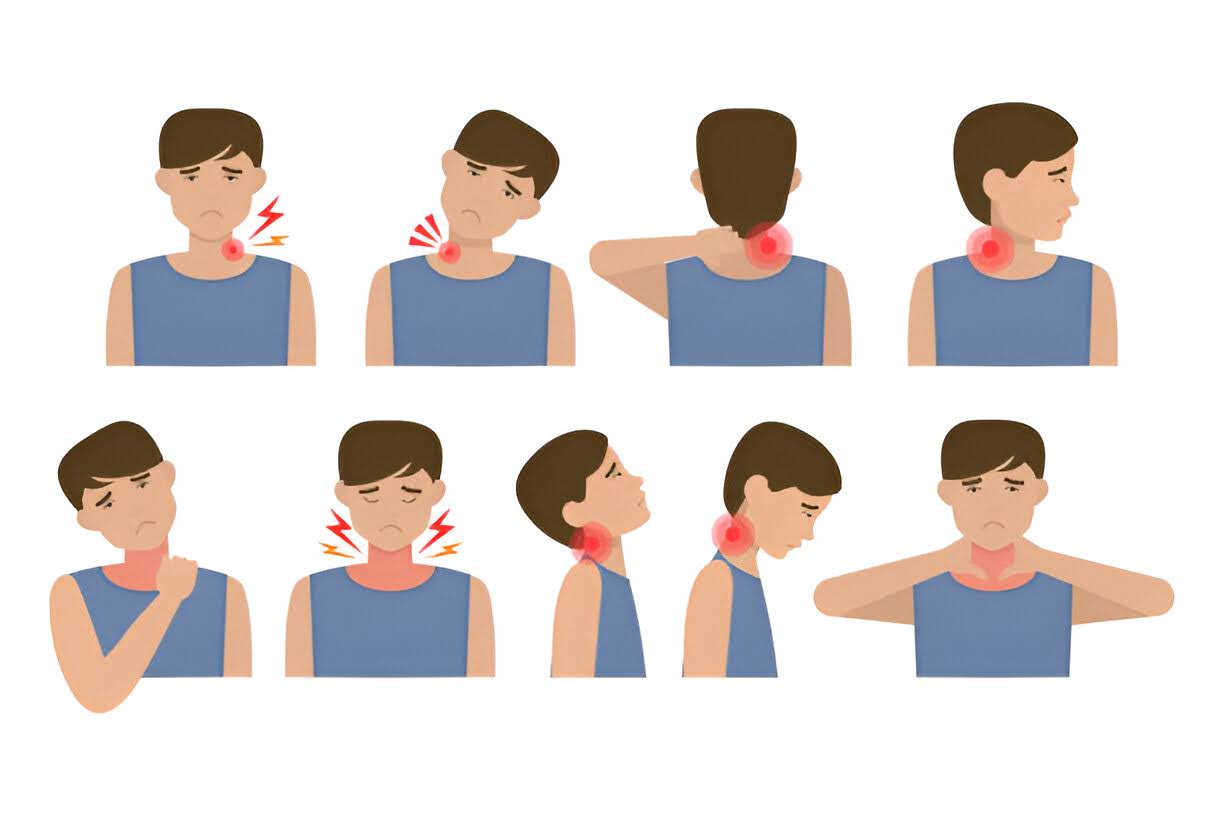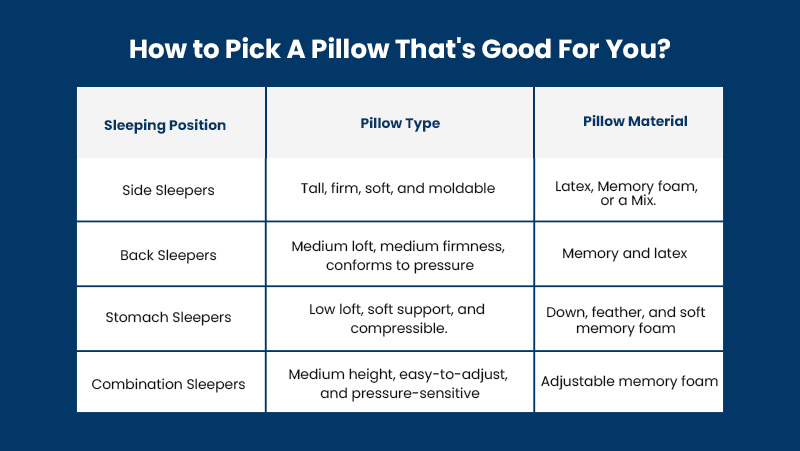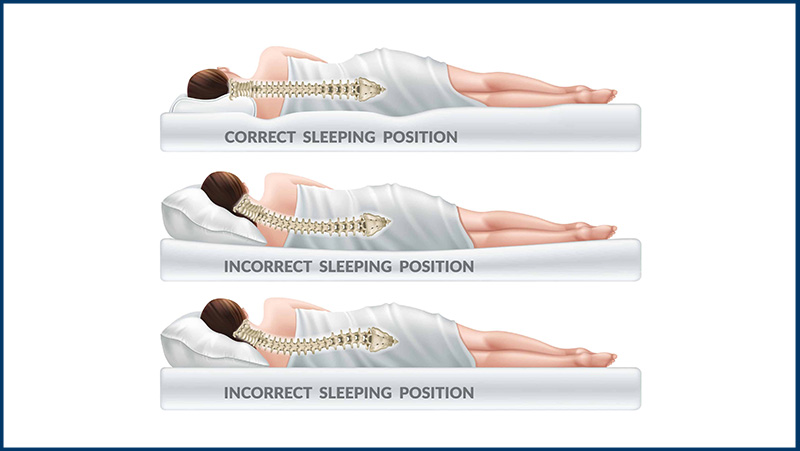Have you got neck and shoulder pain? Even minor discomfort matters. Don't ignore it! Simple things could cause it. Fixing these could solve the issue. Your pillow, for instance, could be a problem. Improper alignment might make you uncomfortable. You toss and turn at night, hunting for comfort. No wonder you don't get enough sleep by morning.
Remember, good sleep is key to excellent health, sharp brains, and overall wellness, say experts. Ready for comfort? Just get a neck pillow. This guide will explain why neck pillows are essential. Plus, we'll show you how to adjust them for the most comfort and how to maintain them for longevity.
Why Do We Need A Neck Pillow?
A neck pillow can enhance your sleep quality. Here's how: it aligns your neck and spine so your muscles aren't strained. No more pain, stiffness, or soreness! With correct neck position, say goodbye to headaches, too. The awesome part? Correct alignment enhances your daytime posture as well. No more discomfort from bending or twisting to find comfort.
Neck pillows help lessen sleep apnea and snoring. They secure your head and neck, allowing your air passage to stay open. You'll breathe easily all through the night. A neck pillow can be more comfortable and soothing. The padding molds beautifully to the lines of your neck and head. It lets you experience truly peaceful, painless sleep.
Neck pillows help lessen snoring and sleep apnea. They secure your head and neck, helping your air passage stay open. You'll breathe easily all through the night. A neck pillow can be more comfortable and soothing. The padding molds beautifully to the lines of your neck and head. It lets you experience truly peaceful, painless sleep.
Recognize the benefit of a good neck pillow. Plenty of beautiful models exist to cater to your needs. Remember to switch your pillow every 1-2 years. Invest in a more upmarket one—it will outlast others and give superior support.

Adjusting your pillow can bring a crucial benefit. It lets you change its height and hardness for personal comfort. Plus, you can alter the lift to get the best neck position. This process will keep your neck aligned and ease pressure, preventing pain while sleeping.
You can change the thickness with removable inserts for better backing. A great choice is pillows filled with water. Add or remove water to get the exact hardness and shape you want. Keep in mind:
- If you sleep on your side, a taller pillow fills the gap between your neck and mattress.
- Back sleepers need a middle-height pillow to cradle the neck curve.
- For those who sleep on their belly, a thin or even no pillow is best to keep the neck from stretching too much.
When tweaking, give yourself some time to check how cozy you feel. This requires laying down in your favored sleeping position and gauging your comfort. Do you feel any discomfort or pressure points? Continue making changes until you feel comfy and supported.
How to Pick the One That’s Good For You?
Your unique sleep style determines the right pillow. This is a crucial factor, especially where neck pillows are involved, as we'll illustrate.
Side Sleepers
Pillow Type: Tall, firm, soft, and moldable
A side sleeper usually has a gap between the neck and pillow surface. If the gap isn't supported, it can strain your head and shoulder muscles. The neck pillow needs to be sturdy, supportive, and tall. Try a pillow with a dip in the middle; it's perfect for your head. The raised areas can support your neck well.
Material: Comfort and support are key in pillow material. The top picks are latex, memory foam, or a mix.
Have you ever heard that sleeping on your side is the best? It's the favored position for pregnant women. Why? It promotes good health for both mom and baby. Better blood flow makes this possible. And there are other perks. Less snoring, better digestion, and brain health all come with side sleeping. But remember, without supporting your head and neck, you might feel stiff and get a tight jaw.
Quick Tip: To align correctly, simply put a tiny pillow between your knees. This keeps your legs and hips lined up straight. It eases pressure off your lower back, which means less pain and stiffness.

Back Sleepers
Pillow Type: Medium loft, medium firmness, conforms to pressure
Back sleepers need support for their natural neck curvature, so opt for a medium-firm pillow with a low loft. Cervical pillows are ideal for back sleepers.
Material: Memory and latex offer optimal comfort and support, but you can choose feathers or traditional down.
Quick Tip: Place a small pillow under the knees to remove lower back pressure.
Stomach Sleepers
Pillow Type: Low loft, soft support, and compressible.
Choose your pillow wisely. Avoid causing stress to your neck. Consider the height and thickness. A thin, soft, and flat pillow is best. Alternatively, you can skip a pillow to keep a straight neck.
Material: Down, feather, and soft memory foam are the top choices for those who sleep on their stomach.
Quick Tip: Put a pillow beneath your midsection. It can improve your spine's alignment. This is especially beneficial if your pillow is thick enough to cause neck issues.
Combination Sleepers
Pillow Type: Medium height, easy-to-adjust, and pressure-sensitive
The trick lies in its ability to support you as you shift positions throughout the night. Medium-thick pillows that can be altered to your ease are perfect.
Material: Adjustable memory foam is excellent. Customize your pillow's inserts as per your sleep habits.
Quick Tip: Without the right neck pillow, you risk problems like neck and shoulder pain.Choose one suited to your sleep style and made of comfy materials.
Is A Neck Pillow Good?

Neck pillows work thanks to three things: sleep science, biomechanics, and anatomy. Their design ensures all these factors. Let's delve into these points.
Aligns the Spine
Remember from your science lessons, the backbone is a bunch of bones with a natural bend. This bend should stay the same, even when you're sleeping flat. If it changes, it could mess with the correct placement of your spine.
A pillow made explicitly curved for the neck will maintain a natural bow position of your neck. This aims to keep your head and backbone in a neutral position. It also aids in reducing discomfort in the muscles, ligaments, and nerves in the upper back and neck.
Compatible with All Sleeping Positions
We discussed this topic earlier quite a bit. Considering how you sleep, it's vital to keep everything aligned correctly. This affects whether your throat gets blocked, pressure point stress, and just how comfy you feel.
Therefore, you should pay attention to things like the thickness, how you can adjust it, the shape, and the material of your pillow. Like memory foam, pillows tend to cradle and align to the neck's natural curve. Latex pushes back to support head weight, and down alternative pillows don't sink in much.
Final Thoughts
Ensuring a restful night's sleep goes beyond finding the right mattress—it's about selecting the perfect pillow, especially when supporting your neck. Whether you're a side, back, stomach sleeper, or a combination, specific pillow types are designed to help each sleeping position effectively.
Materials like memory foam, latex, or down alternatives offer varying levels of comfort and support tailored to individual preferences. Investing in a quality neck pillow and adjusting it to suit your needs can alleviate neck and shoulder pain, reduce snoring, and enhance your overall sleep experience.
Sources:
Neck Pillows: What You Need to Know - WebMD
The Best Way to Sleep with a Sore Neck: healthline





















